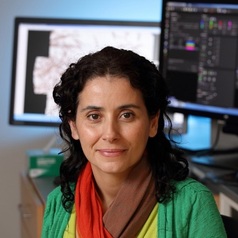
Eyleen Jorgelina O'Rourke
Associate Professor of Biology and Cell Biology, University of Virginia
Through evolutionary history the human genome was optimized to promote survival in environments where food is mostly scarce. These survivor-genomes clash with an environment where calorie-rich foods are readily available. Based on the premise that the genes networks that allow animals to endure starvation are under strong selective pressure and consequently conserved, we use a combination of cutting-edge functional genomics, biochemical, cell biology, genetic, and physiological approaches to identify and characterize the conserved gene networks that allow the animal model Caenorhabditis elegans to adapt to changes in food availability. Ultimately, our research would contribute to better understanding of how dysfunctional gene networks affect or cause obesity, diabetes, and cardiovascular disease, and accelerate aging.

Jan 23, 2024 06:14 am UTC| Insights & Views Health
The journey of aging brings with it an unavoidable reality for many: an increased accumulation of body fat. Though much of society seems mostly focused on the aesthetics of being overweight, doctors look past any cosmetic...
- Market Data



































